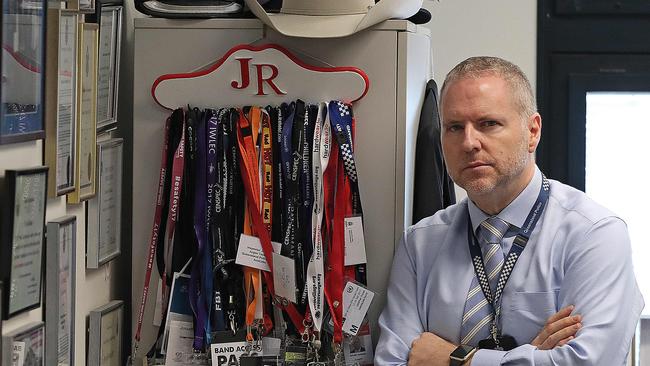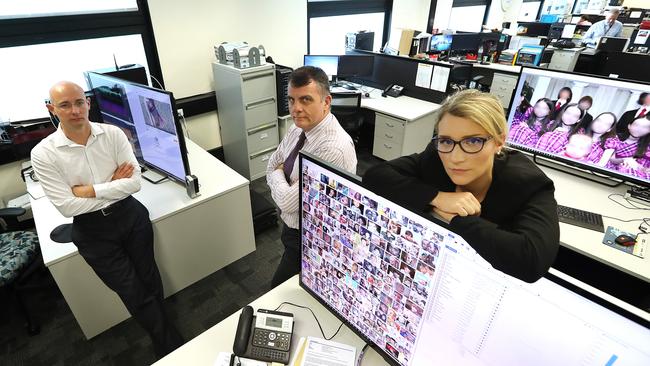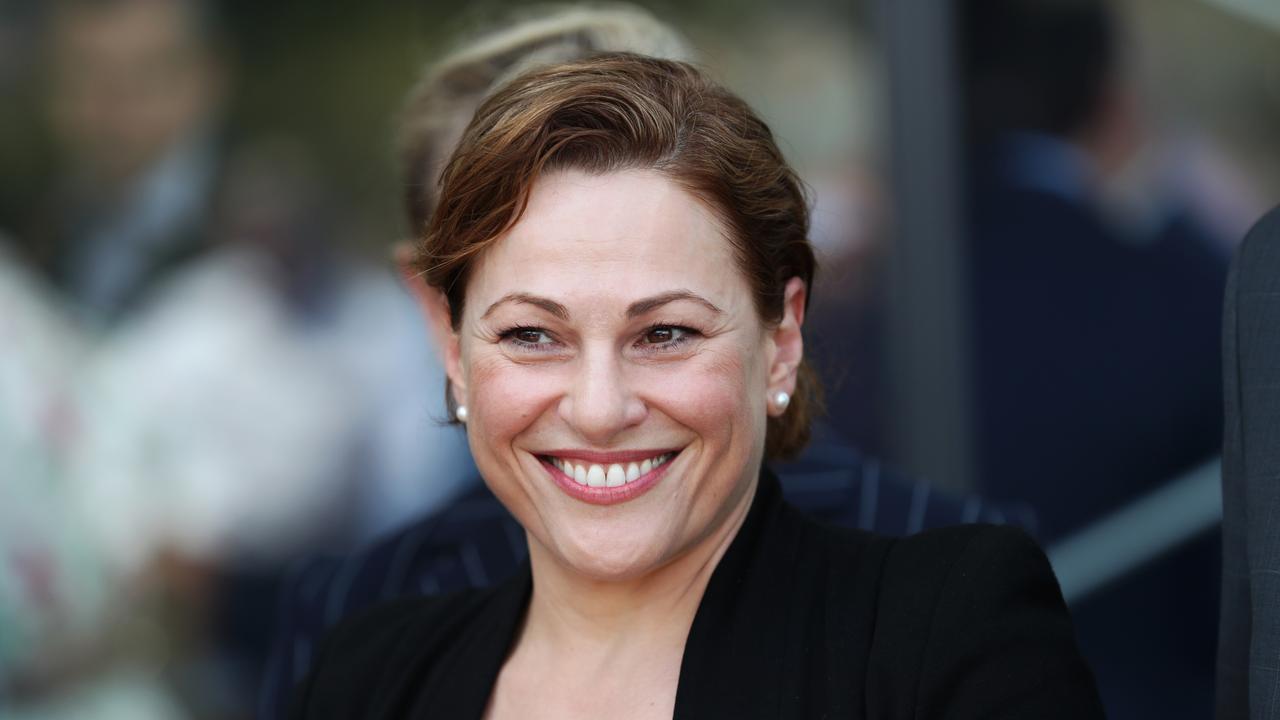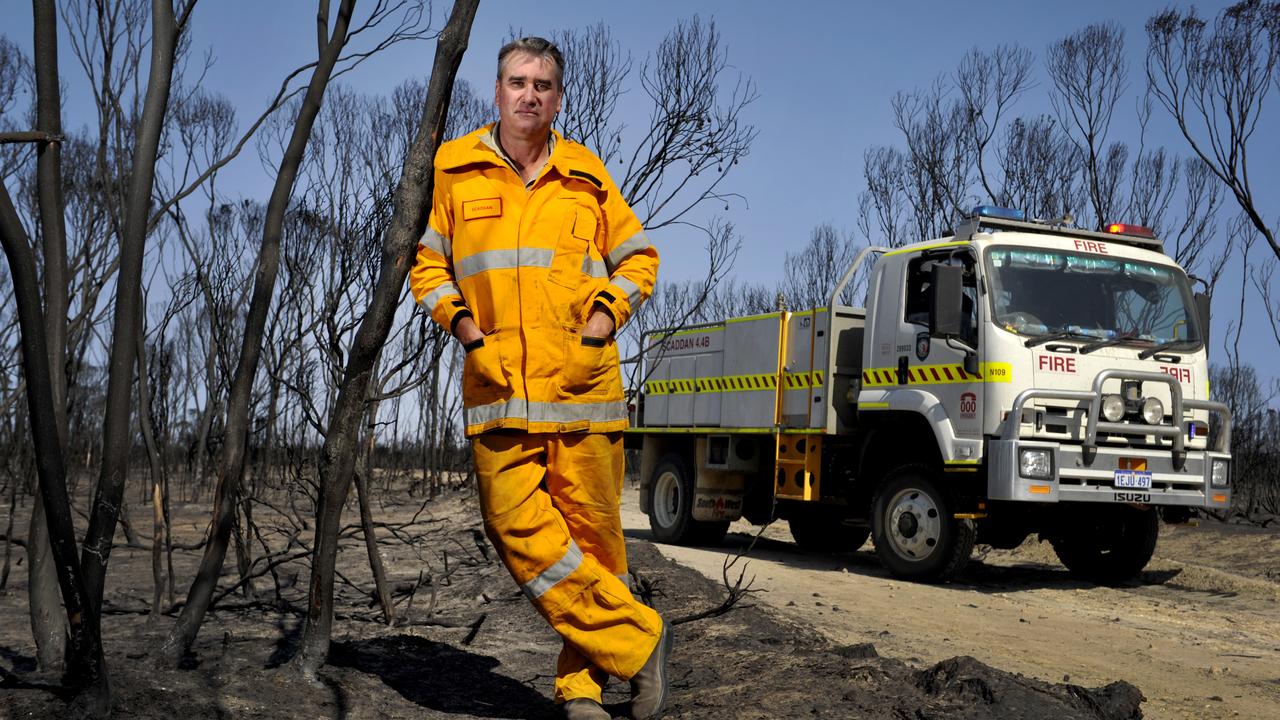Task Force Argos: freeing children from web’s darkest corners
Task Force Argos has been instrumental in the undoing of some of the world’s worst pedophiles.

On the first floor of police headquarters in Brisbane, Adele Desirs replies instantly when asked how she rates Task Force Argos.
“It’s the best,” she says matter-of-factly about the Queensland Police Service’s online child exploitation squad.
Desirs, 35, is a French police captain. She was working at Interpol’s crimes against children unit in Lyon when she was recruited to work on victim identification with Argos in January last year. Almost immediately she was drafted into an extraordinary investigation of the internet’s darkest corners, an Argos-led multi-agency operation that has led to the rescue of more than 100 children worldwide.
It was another victory for Argos, which over the past two decades has been instrumental in the undoing of some of the world’s worst pedophiles.
Operation Artemis was centred on the arrest of a Canadian, Benjamin Faulkner, and an American, Patrick Falte, in the US in October 2016 for the rape of a four-year-old girl.
Faulkner was the founder of a dark web abuse forum called Childs Play, and Falte ran a similarly evil site called Giftbox Exchange; thousands of members turned to these sites to anonymously view and trade images of abuse.
The dark web is home to the internet’s most sordid wares. A criminal marketplace and meeting place, it is hidden from traditional search engines and accessed using software that hides the identity of users.
Shutting down the sites when Faulkner and Falte were arrested would have given everyone else involved the chance to slip away. Police had a different plan. Task Force Argos was going to impersonate Faulkner and run Childs Play to gather information.
For their sting to work, investigators had to get inside Faulkner’s head so they could pretend to be the pedophile online. To keep the ruse going they also had to share child exploitation material — the very images they were seeking to eliminate.
The fight against online child exploitation is a global one; investigators around the world work together, knowing members of these sites and their victims can be anywhere.
And there were some good reasons for Argos to get involved. There was a clear connection to Australians on the board; in fact the first child victim identified after Argos assumed administration was an Australian.
The Queensland squad had taken over and run a major dark web forum before, with stunning results, was skilled in impersonating pedophiles online and had the resources and the will to do it. Perhaps most importantly, it also had clear legal backing.
In the US, covert operations can be done but courts have been critical. In many other countries it is not permitted. “There’s a few other countries that have similar legislation to Australia, but the majority don’t,” Desirs says.
Argos was initially set up to investigate historical child abuse, but was transformed with the growth of the internet. Since the early 2000s it has been waging war against those who use technology to facilitate the abuse of children. Its motto is “leave no stone unturned”.
Made up of about 40 police and civilian investigators, the squad also works with eight embedded Australian Federal Police officers in what is known as the Joint Anti Child Exploitation Team.
Faulkner handed over the details to run Childs Play and it was moved to a server in Australia. Within days, Argos was actively running it. It was a controlled operation subject to external oversight and approval.
So what happened after Argos took over the site? The pay-off was a clear tactical advantage: they could peer into areas of the site previously beyond view. Traps could be laid and with every new post came the chance that someone would slip up.
Desirs was investigating one Childs Play target, suspected to be from Australia or New Zealand, when she discovered a new image of a young boy. She wanted to know if any additional images had been taken, so inquired internationally.
A single, similar image was received back. Desirs investigated and found it was not her target: it involved a different man, who also appeared to be Australian. So Desirs now had two targets.
In both cases there was very little to go on in the images themselves — the men had left almost nothing in the way of clues. She asked The Weekend Australian to withhold details of methodology, as offenders analyse every line “then take counter measures”. But her detective work on the second target led her to a man living in regional Australia.
Trawling through his social media accounts and networks, she found images of his son and immediately recognised it was the victim. As is often the case, the offender appeared on the surface “completely normal”, she says. “He had friends, he had family, a lot of pictures of activities he was doing, his travels, the repairs he was doing on his home.”
But retrieved images reflected what he’d boasted of online: that he’d abused his son, 4, since birth. He was arrested and is still before the courts. The other target remains at large, as do many others.

“This type of operation is the only way for us to gather information and to have a chance to identify these people,” Desirs says. “This is a race and we are losing, that’s for sure. The volume every day — it’s impossible. When I’m working on a case, how many cases am I not looking at? And if you don’t look at it, who will? It’s all about looking at these images, and there are millions and millions. You look at these boards and you have 100 or 200 or 300 new posts every day.”
In her opinion, Argos’s victim identification manager, Paul Griffiths, is the discipline’s leading expert. She says it is “amazing the number of children he’s already rescued over the years”.
“Here we can focus 100 per cent on doing victim identification. And it’s working. We as a team find a child almost every day, so it’s really worth it. When the country arrests him (an offender), it’s sometimes years of abuse that ends and so many other victims that are rescued.”
Griffiths, 53, is from Manchester and worked in child victim identification in Britain for more than a decade before joining the Queensland Police Service in 2009. He’s the chair of Interpol’s specialist group on crimes against children. About 100 offenders have been identified and “well over” 100 children rescued worldwide as a result of Operation Artemis, he says.
It had a precedent. The squad had previously taken over a dark-web site run by South Australian residential care worker Shannon McCoole. Among those arrested was Britain’s Richard Huckle, who was convicted of the rape and sexual assault of 23 children. McCoole was jailed for 35 years for the abuse of seven children as young as 18 months old.
“I personally think it was the biggest job we have ever done,” Griffiths says of the previous operation. “We probably thought (it) would never be done again. And then it happened again and again.”
Here, Griffiths hints at more operations that have not yet been revealed. For deterrence, he wants offenders to know police are coming for them.
At its peak, Childs Play had about one million profiles, although there were about 3000 active users, Griffiths says. Many are still active. So, the work continues. “What we try to do is find the bad guys. If they’re in Queensland then fine, we’ll prosecute them in Queensland,” he says. “But if they’re in Mexico, if they’re in Brazil, if they’re in China, if they’re wherever, I don’t think you can sit there with a clear conscience and say, ‘I’ve found who this guy is but he’s not in my patch so we’ll just leave him’.”
What goes around tends to come around. Denmark recently referred a case of a Queensland man raping an eight-year-old girl. “How can we expect they’ll tell us about our bad guys if we’re not telling them about theirs,” he says.
American Scott Anderson, 42, joined Argos’s victim identification team early last year. Months later, with Argos running Childs Play, he started investigating videos posted on the site showing the abuse of a girl, 7. The offender appeared to be living in The Philippines. Argos would eventually establish that the child was being “sold” by her uncle for $US300.
Anderson says the breakthrough came in September when the original target discussed plans to go to France to rape two girls, aged 4 and 7. Argos alerted French police, who tracked his movements after his arrival and arrested him.
Officers from The Philippine National Police Women and Children Protection Centre were alerted by the AFP and subsequently arrested the victim’s uncle. In France, police arrested additional offenders and identified further victims. All in all, there were four victims rescued and three offenders arrested due to the collaboration of six organisations in three countries. The cases are still before the courts.
Argos is an example of what can be done when squads have the resources, the dedication and the skills. Desirs and Anderson were hired after the Palaszczuk government put an extra $3.2m into the area, using savings from an under-budget organised crime inquiry. Home Affairs Minister Peter Dutton also recognises the need for resources, last month announcing $68.6m to create the Australian Centre to Counter Child Exploitation.
In September last year, Faulkner and Falte were jailed for life in the US. Argos shut down Childs Play the same month, but investigations continue.
Jon Rouse, the Detective Inspector in charge of Argos, says investigators are not “rogue traders or cowboys”. “All of the investigative work we do is governed by strict predetermined legislative parameters and review,” he says. “Child sex offenders are adept at taking immediate advantage of evolutions in technology. Over the last 18 years our unit has consistently and successfully submitted for legislative reform to try to keep the playing field level.”
Desirs says some people may not fully appreciate who police are dealing with. “For me, it’s clear. It’s a war and children are losing. If we want to help the children we have to use very, very strong methods. It’s the only way.”




To join the conversation, please log in. Don't have an account? Register
Join the conversation, you are commenting as Logout